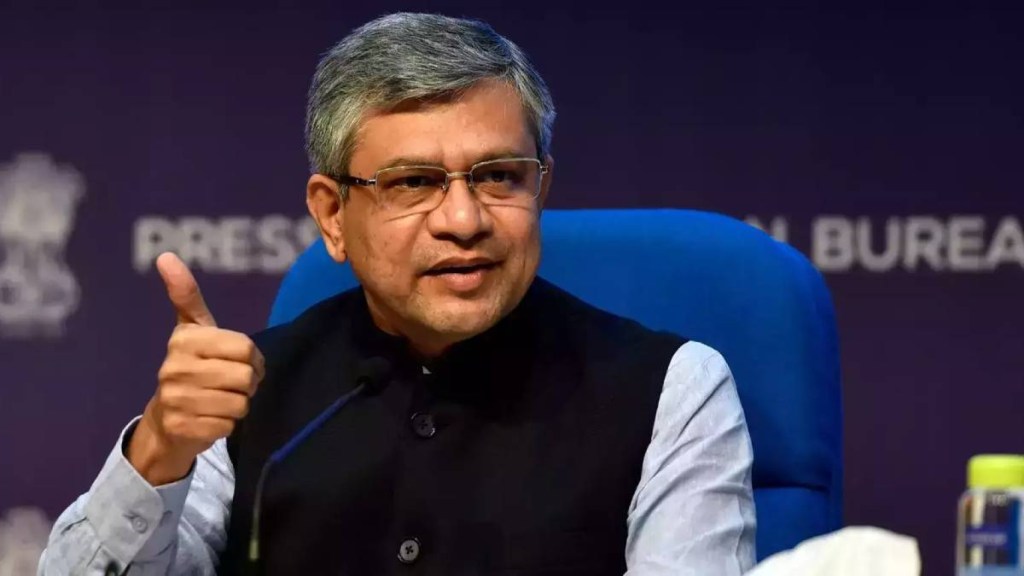With Ashwini Vaishnaw retaining the ministry of electronics and IT (Meity) portfolio, startups in the semiconductor industry are upbeat as they feel the policies for the sector during Modi 2.0 will continue without any hindrance.
Startups in this segment feel they will be able to leverage opportunities by providing specialised solutions tailored to meet the specific needs of facilities in India.
“Initiatives taken by the government will offer significant financial and infrastructural support to new ventures. This will not only reduce barriers to entry but also encourage innovation and collaboration within the ecosystem,” Mahankali Srinivas Rao, CEO, T-Hub told FE.
As is known, in December 2021, the government approved outlay of Rs. 76,000 crore for the semiconductor manufacturing ecosystem, announcing incentives for every part of the supply chain from electronic components to sub-assemblies and finished goods. In 2022, it launched the India Semiconductor Mission (ISM) under which it introduced initiatives such as the Design Linked Incentive (DLI) scheme and a scheme for setting up compound semiconductors or silicon photonics or sensors fab and semiconductor assembly, testing, marking and packaging (ATMP) or outsourced semiconductor assembly and test (OSAT) facilities in India.
This led to the announcement of major semiconductor plants, including projects by Tata-Powerchip Semiconductor Manufacturing Corporation, Tata OSAT, CG Power-Renesas, and Micron. As these large fabrication and marking and packaging facilities become operational, startups can acquire more and more clients within India, say experts.
“With these fabs expected to commence operations over the next few years, there will likely be a surge in demand for various semiconductor components and services,” Rao added. T-Hub, in partnership with Atal Innovation Mission (AIM), NITI Aayog, operates the Atal Incubation Centre (AIC)-T-Hub programme. Startups enrolled in the programme have raised Rs. 6 crore via grants and angel investments, with discussions for an additional `3 crore underway.
According to Tracxn data, India has 389 active semiconductor companies in India, with over 216 companies founded after 2010. Some notable startups in the space include SimYog, Netrasemi, Mindgrove, SiMa.ai, SiliConch, InCore, Ambit, GeoCon and Tranzmeo.
Experts foresee substantial client engagement for these startups very soon, as they anticipate the current trajectory to continue.
“It’s just a matter of 5-10 years, we will see a big change. And from there, the semiconductor market grows exponentially in India,” Saseendra Kumar Jonnalagadda, founder and CEO, Ambit Semiconductors said.
According to Custom Market Insights, the Indian semiconductor market size was valued at $34.3 billion in 2023 and is expected to reach $100.2 billion by 2032, at a CAGR of 20.1% during 2023–2032. The demand will also be driven by IoT adoption, 5G implementation, smart manufacturing, automotive electronics, and expansion of consumer electronics markets.
As of now, there are broadly six to eight sub-segments within the semiconductor space. This includes designing, fabricating, assembling, testing, marking, packaging and finally supplying semiconductors, to be used in automobiles, video game consoles, computers, household appliances, and electronic devices.
Most startups in India operate in the fabless design space. Therefore, the chip-making process at present is time-consuming. It involves sending the design to a foundry abroad, where it is etched on a silicon wafer and shipped to a packaging factory within the same country or another country. “This whole process takes months. With fabs and packaging units coming up in India, we will get our products faster. We will also have more visibility of the progress of our orders,” Shashwath T R, co-founder and CEO, Mindgrove Technologies said.
“Additionally, the DLI scheme can improve access to EDA software, and multi-project wafer programs can offer cost-effective prototyping opportunities, all contributing to a more robust future for the industry,” Sahil Khan, founder, GeoCon said.

